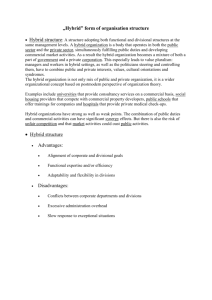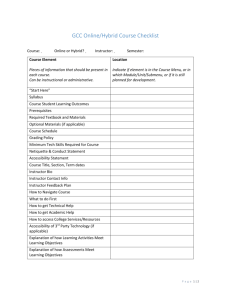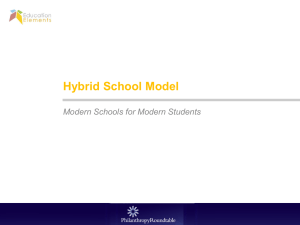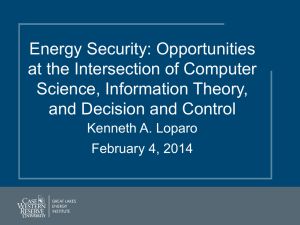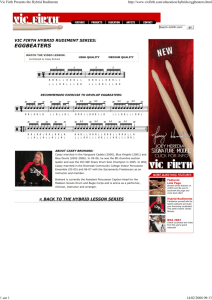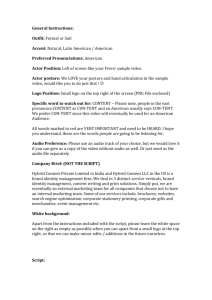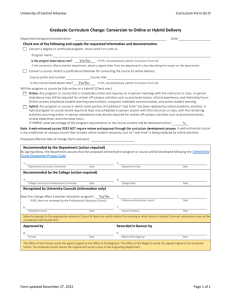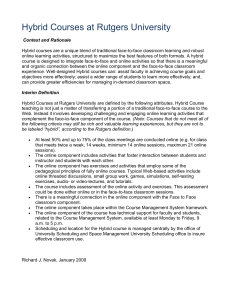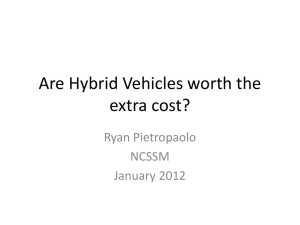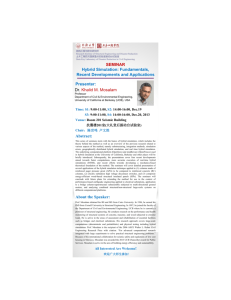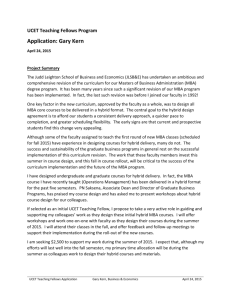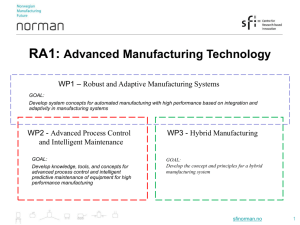ECE 8194.01 (Proposed): Hybrid Systems: Theory and Applications
advertisement
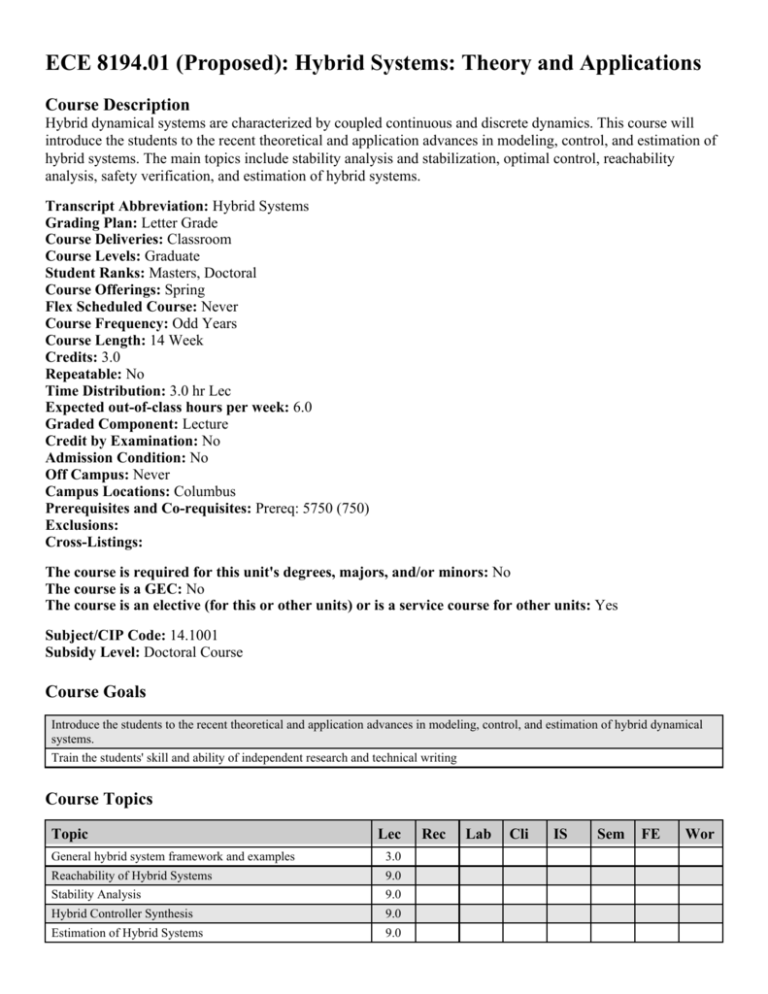
ECE 8194.01 (Proposed): Hybrid Systems: Theory and Applications Course Description Hybrid dynamical systems are characterized by coupled continuous and discrete dynamics. This course will introduce the students to the recent theoretical and application advances in modeling, control, and estimation of hybrid systems. The main topics include stability analysis and stabilization, optimal control, reachability analysis, safety verification, and estimation of hybrid systems. Transcript Abbreviation: Hybrid Systems Grading Plan: Letter Grade Course Deliveries: Classroom Course Levels: Graduate Student Ranks: Masters, Doctoral Course Offerings: Spring Flex Scheduled Course: Never Course Frequency: Odd Years Course Length: 14 Week Credits: 3.0 Repeatable: No Time Distribution: 3.0 hr Lec Expected out-of-class hours per week: 6.0 Graded Component: Lecture Credit by Examination: No Admission Condition: No Off Campus: Never Campus Locations: Columbus Prerequisites and Co-requisites: Prereq: 5750 (750) Exclusions: Cross-Listings: The course is required for this unit's degrees, majors, and/or minors: No The course is a GEC: No The course is an elective (for this or other units) or is a service course for other units: Yes Subject/CIP Code: 14.1001 Subsidy Level: Doctoral Course Course Goals Introduce the students to the recent theoretical and application advances in modeling, control, and estimation of hybrid dynamical systems. Train the students' skill and ability of independent research and technical writing Course Topics Topic Lec General hybrid system framework and examples 3.0 Reachability of Hybrid Systems 9.0 Stability Analysis 9.0 Hybrid Controller Synthesis 9.0 Estimation of Hybrid Systems 9.0 Rec Lab Cli IS Sem FE Wor Representative Assignments final project Grades Aspect Percent Homework assignments 20% Midterm exam 30% Final Project 50% Representative Textbooks and Other Course Materials Title Author The Art of Hybrid Systems (reference) J. Lygeros, C. Tomlin, and S. Shankar Switching in Systems and Control (reference) Daniel Liberzon Hybrid Dynamical Systems: Modeling, Stability, and Robustness (reference) Rafal Goebel, Ricardo, G. Sanfelice, and Andrew Teel ABET-EAC Criterion 3 Outcomes Course Contribution *** College Outcome a An ability to apply knowledge of mathematics, science, and engineering. b An ability to design and conduct experiments, as well as to analyze and interpret data. c An ability to design a system, component, or process to meet desired needs. * d An ability to function on multi-disciplinary teams. *** e An ability to identify, formulate, and solve engineering problems. f An understanding of professional and ethical responsibility. ** g An ability to communicate effectively. * h The broad education necessary to understand the impact of engineering solutions in a global and societal context. i A recognition of the need for, and an ability to engage in life-long learning. *** j A knowledge of contemporary issues. ** k An ability to use the techniques, skills, and modern engineering tools necessary for engineering practice. Prepared by: Wei Zhang
